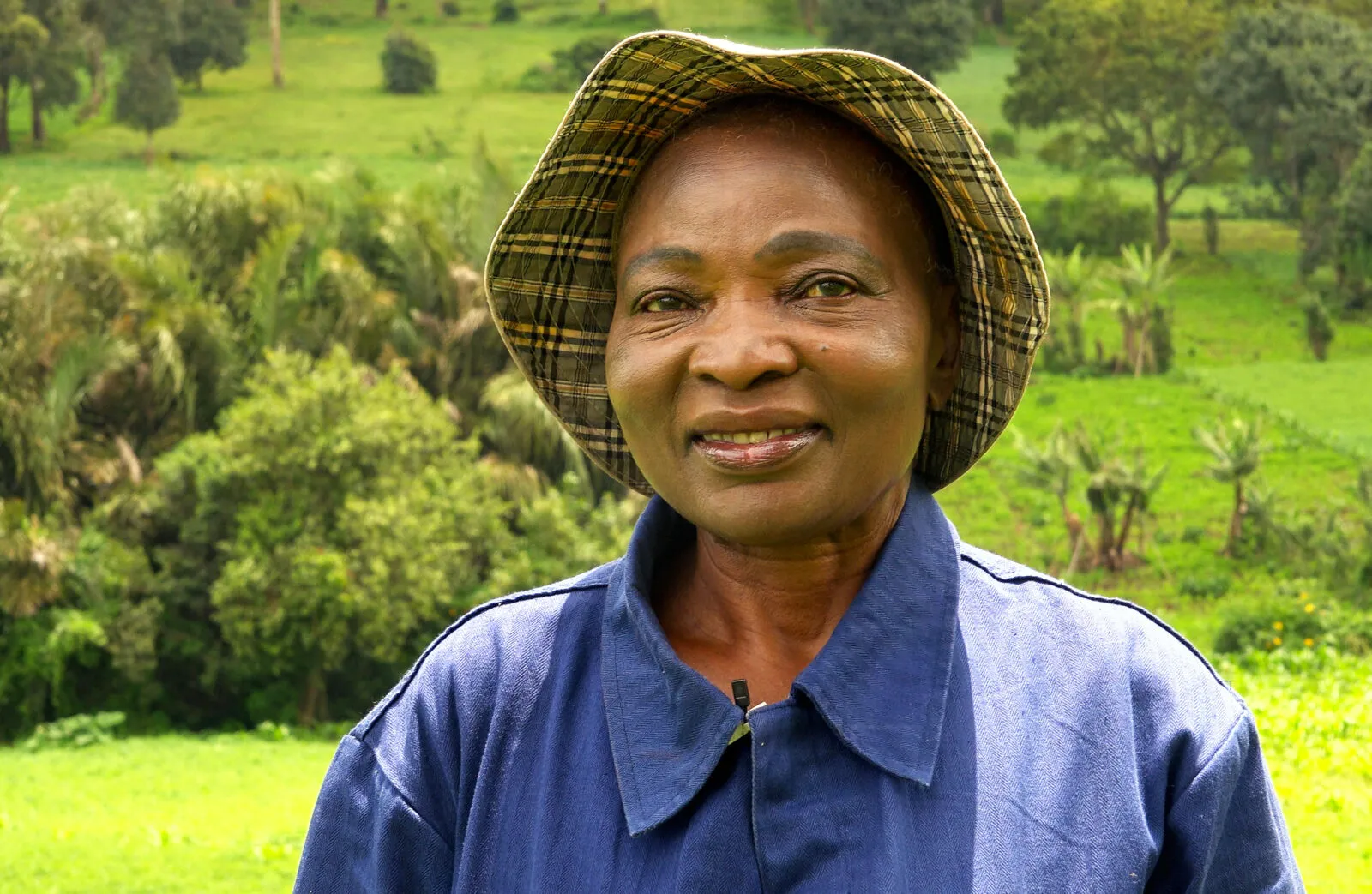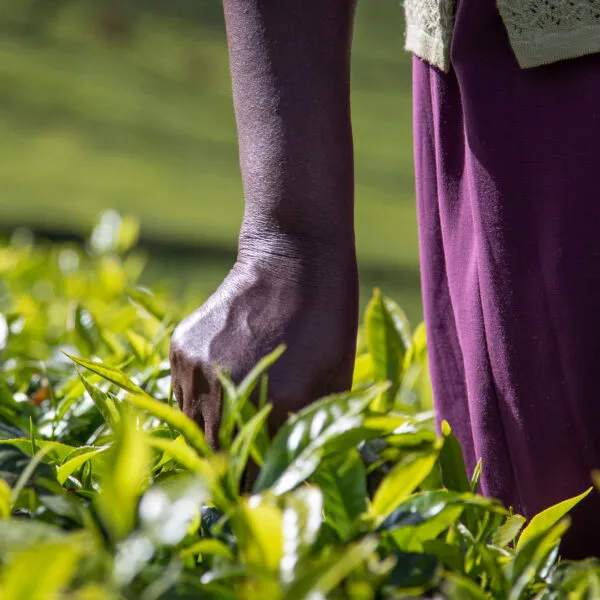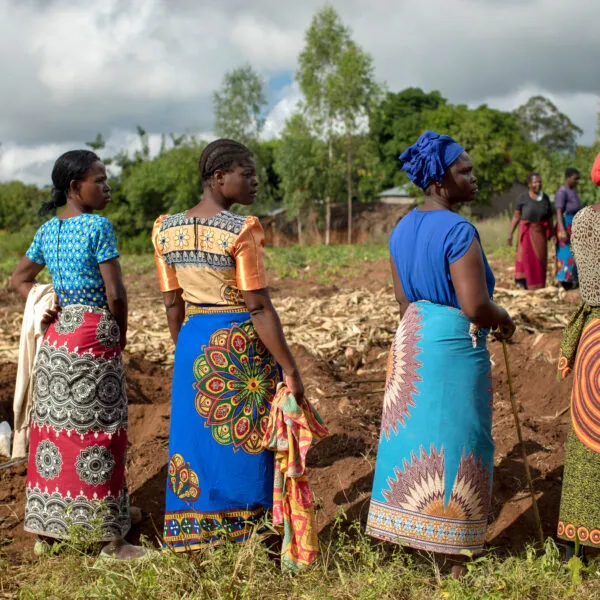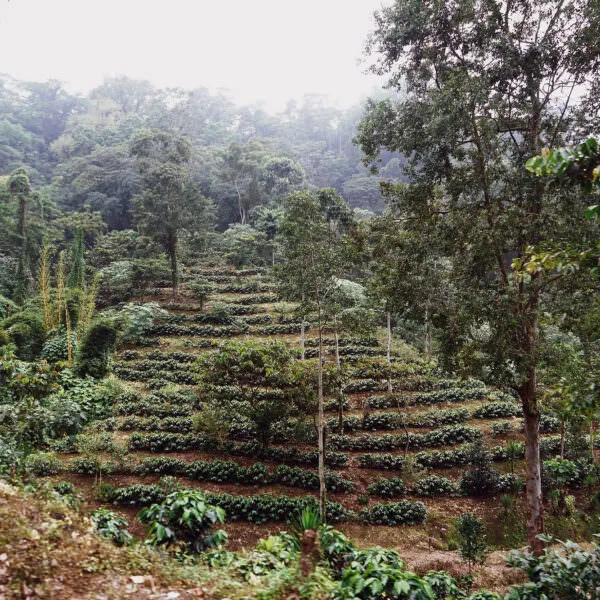There’s a reason that gender equality ranks high on the UN list of Sustainable Development Goals: Experts know that leveling the playing field for rural women is critical to supporting sustainability, building thriving communities, maintaining healthy landscapes, and tackling climate change.
Simply put, if we want a livable future, rural women must have access to the same resources, training, and opportunities as their male counterparts. (In some countries, women are not allowed to own land or access credit—even though they may be doing most or all the labor on a family farm.) There’s plenty of data to show that giving women equal resources would help save the planet, but there are countless individual women whose personal stories prove it, too. Meet some of our incredible allies, women in sustainability who have successfully transformed their communities and the landscapes around them.
Sign up for useful tips to green your life and protect our planet.
Agung Widi: A sustainability super-shero in Bali
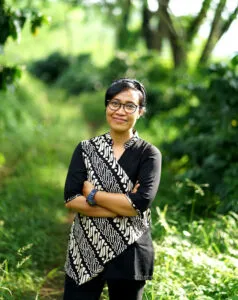
Nearly all of Indonesia’s cocoa is produced by smallholders, such as the farmers who make up the Kerta Samaya Samaniya (KSS) cooperative in rural Bali. Like many of their peers, these farmers were struggling with extreme poverty, unproductive cocoa trees, and plant diseases—that is, until Agung Widi entered the picture.
Through Kalimajari, the NGO that she founded, she encouraged KSS’ farmers to work toward sustainability and apply for Rainforest Alliance certification, a feat they achieved in 2012. After recommending that they ferment their cocoa, she supported this decision by coordinating training in the local language, and even brokered a deal with a leading chocolate-maker, which agreed to pay KSS a premium for its fermented beans. As a result, more than 600 smallholders doubled their income, and rural unemployment rates were reduced.
Agung has also played a key role in policy reform, transforming cocoa cultivation across Indonesia. But her fiercest advocacy efforts may be on behalf of female farmers. By leading a gender equity program, she has shown women that they can thrive by working toward sustainability in the cocoa sector and even helped them send their children to school. Despite her enormous impact, though, she remains remarkably humble. “I’m not the hero,” she says, “but I have knowledge, and I want to share what I know with others.”
The women of Warmi Awadora weave a better future in Peru
In Peru’s biodiversity-rich San Martín region, Indigenous women are playing a key role in promoting sustainability, protecting forests, and boosting local livelihoods. A collective of Kichwa women from five local communities established Warmi Awadora, a brand of textiles that they weave using cotton cultivated in harmony with their forests. The result is a gorgeous rainbow of fabrics, from which the women make bracelets, earrings, bags, and other colorful items.
The money they generate from the sale of these products helps to supplement the income their husbands earn from farming and other work, and their business also helps to preserve ancestral knowledge. “If [our children] don’t continue with the textiles,” says President Lisida Ishuiza Tapullima, “the tradition will be lost, and the Kichwa communities and culture will be lost, too.”
But these women are forward-thinking when it comes to managing the enterprise itself. Working with the Rainforest Alliance, they have acquired business and digital skills, including how to promote their goods on social media and ship them to customers around the world. Instead of relying solely on tourist visits to the community—which dropped precipitously during the pandemic—they have adapted, expanding the market for their unique products.
Grecia Magdalena López: Leading women toward sustainability in Guatemala
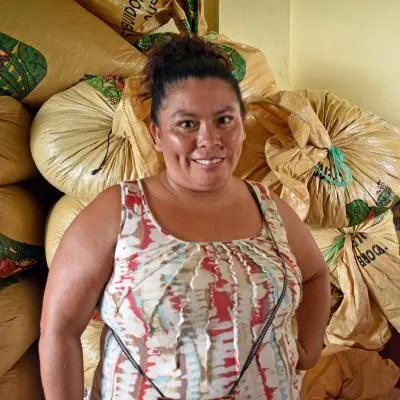
“Before, we didn’t place any value on the ramón nut. It grew in the forest and that’s where it stayed,” says Grecia Magdalena López of Uaxactún, Guatemala. But over the years, under López’s leadership and with the Rainforest Alliance’s support, women from seven communities began gathering raw nuts from the forest floor and processing them into flour that they then used to make baked goods and beverages to sell. To negotiate better prices, they banded together, forming the Ramón Nut Value Chain Committee, with López at the helm as president. Now she is the non-timber forest products coordinator.
She also conducts workshops on gender equality and women’s rights. “As women, our participation in this process has been really important. With the income we get from selling these products, we’re able to help our children, especially with health and education.” López also serves on the board of OMYC, an organization devoted to the responsible management of Uaxactún’s 84,000 hectares.
Nadège Nzoyem: An expert in a male-dominated field
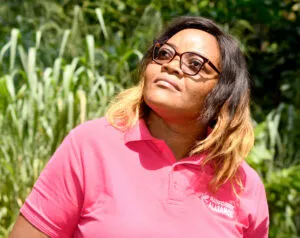
Growing up in western Cameroon, Nadège Nzoyem always knew she wanted to work in forestry—even though it was, and still is, a male-dominated field. Today, she’s a nationally recognized expert in sustainability and community forestry who oversees the Rainforest Alliance’s work with rural communities across Central Africa. She knows that to conserve the ecologically precious forests of the Congo Basin—a largely intact expanse of tropical rainforest second only to the Amazon in size—local communities must be able to earn a decent living through sustainable activities.
In particular, Nzoyem understands the central role that women can play in protecting the environment and boosting incomes. She is dedicated to advancing women’s rights through initiatives like the community-based landscape management project she oversees in Cameroon’s Mount Bamboutos region. The goal is to ensure that women there are able to participate in and even lead local landscape management boards, which promote community-based and environmentally sustainable activities.
When rural women gain equal access to land rights, financing, and training, the benefits are extraordinary. “It’s a simple equation,” says Nzoyem. “Strong women equal strong communities and strong landscapes.”
Nguetsop Kana Madeleine has a seat at the table in Cameroon
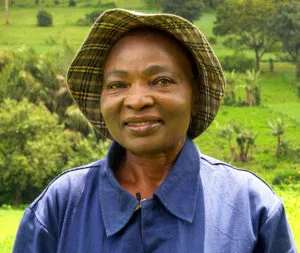
One of the strong women Nzoyem has helped to boost is Nguetsop Kana Madeleine. Passionate about agriculture and horticulture, Nguetsop now gets to apply that enthusiasm in support of her community as a delegate to Mount Bamboutos’ newly established landscape management board.
Members of the board receive training in gender equity issues and learn about more sustainable processing techniques that can improve the quality and market value of each community’s agricultural and forest products, which include avocado, honey, spices, and poultry.
Nguetsop is proud of her role as a delegate because she understands how important it is for women to be included in the decision-making process. “It’s about becoming real partners [with men], especially on the economic level, and the education of society and women,” she says. “That’s what it’s all about, recognizing the value of women.”
